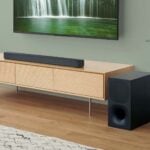stosh
Auditioning
- Joined
- Dec 1, 2002
- Messages
- 7
hello,
I'm currently building a tv room, and I've had the electrician install a whole house surge protector, and a dedicated 20 amp circuit for the new room. He's wired the circuit and used 12 gauge wire, but is inquiring why i want a 20 amp circuit. Rather than say "because the folks over at the home theater forum said so". I'd like to know for myself also.
Questions:
- does a 20 amp circuit have to have a 20 amp receptacle? Is there a difference between a 15 amp receptacle and a 20 amp receptacle?
- does a 20 amp receptacle require any wiring changes from a 15? (I thought I read somewhere that a 20 amp dedicated circuit has to be the only receptacle on that circuit and that only one outlet can be used for each dedicated line, whereas a 15 can have multiple receptacles).
My equipment:
Pioneer Elite 47tx receiver
Sony 5 disc DVD player
Equitech T1500 Theater Power
Sony XBOX
Sony 50" XBR800 LCD HDTV
Paradigm Studio 40, Center, and Surrounds speakers (bi-wired)
Velodyne CHT-12 Subwoofer
SA Digital Cable TV converter
thanks for any advice...
Stosh
I'm currently building a tv room, and I've had the electrician install a whole house surge protector, and a dedicated 20 amp circuit for the new room. He's wired the circuit and used 12 gauge wire, but is inquiring why i want a 20 amp circuit. Rather than say "because the folks over at the home theater forum said so". I'd like to know for myself also.
Questions:
- does a 20 amp circuit have to have a 20 amp receptacle? Is there a difference between a 15 amp receptacle and a 20 amp receptacle?
- does a 20 amp receptacle require any wiring changes from a 15? (I thought I read somewhere that a 20 amp dedicated circuit has to be the only receptacle on that circuit and that only one outlet can be used for each dedicated line, whereas a 15 can have multiple receptacles).
My equipment:
Pioneer Elite 47tx receiver
Sony 5 disc DVD player
Equitech T1500 Theater Power
Sony XBOX
Sony 50" XBR800 LCD HDTV
Paradigm Studio 40, Center, and Surrounds speakers (bi-wired)
Velodyne CHT-12 Subwoofer
SA Digital Cable TV converter
thanks for any advice...
Stosh





